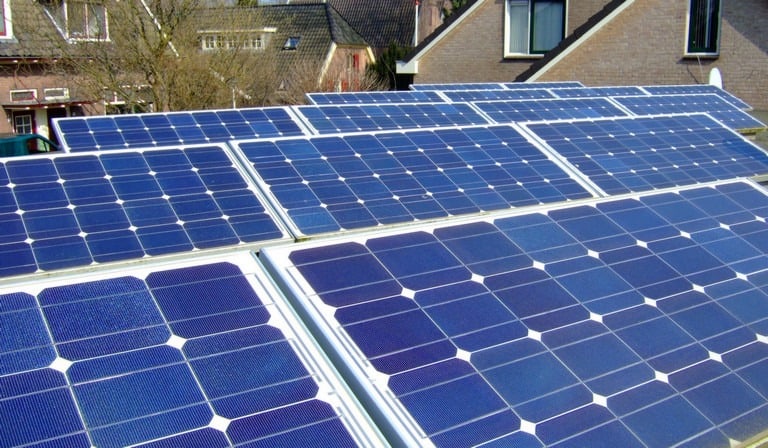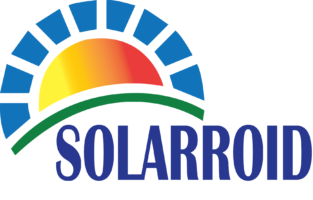When Buying Solar Panels Consider This

Today, more and more people are looking to find ways to reduce their electricity expenses. One way to accomplish this is to limit the use of any electrical appliances in the home, but most of us find this difficult to do. So what else can we do to save money on electricity bills? One viable option is to buy solar panels so that you can generate your own electricity.
Have you ever thought what it would be like if you didn’t have electricity? We take it for granted, don’t we? People all over the world use it. It comes in several forms!
1. Batteries. Used in hand held devises. Torches, Cell Phones, Toys, games, & automobiles.
2. Fuel powered generators. Often used as emergency backup, when the mains power supply fails.
3. Solar power. Power that is generated by the sun.
4. Electricity generated by the wind turning turbine generators, (dynamo’s)
5. Electricity Generated in large power plants, by burning fossil fuels, Water, known as Hydro power. also Nuclear power generation.
All that are listed in No.5 are normally generated by giant companies who are getting greedy by the day, thereby making it more & more difficult for people to afford. So people everywhere are looking for ways to enjoy the benefits of electricity at an affordable price! Solar power is an answer to this problem as it does provide free electricity. But only after the large expense of purchasing a solar power system and having the expensive panels installed, the solar panels also have a limited life of only about ten years. Wind power is another great source to generate electricity, but very impracticable for the average home owner. Why? Because it relies on a constant supply of wind! We all know that we don’t have wind every day. So what could the answer be? To make it inexpensive, even free electricity available to the average person?
After searching & investigating I have found a system that the large power companies & governments world wide have had suppressed for years This technology is now available, below you will find a link that will take you to where all the information is.
A solar panel is a device that converts light from the sun into usable electricity, the same electricity we use to power our homes, devices, appliances, and even some vehicles. The more intense the solar light is, the more energy the solar panel can produce.
There are many advantages to using solar power. For example, if you use your solar panel to power your electric based heating system, you won’t experience any recurring monthly expenses related to the heating of your home. With oil or gas-based heaters, you must pay the gas or oil consumption expense monthly in order to maintain the continuous heating of your home. Since solar power is free, you can run your electric based heating or cooling system without experiencing any extra monthly costs. Many people like using solar power because it is a “clean energy source” and not harmful to the environment. Some countries, the US included, actually provide tax incentives and benefits to people who buy solar panels and generate their own electricity!
Now, in buying solar panels, there are many things to consider. One of the most important factors is to consider your electrical needs. Check or estimate the power consumption required for any of the electrical appliances in your home that you’d like to power with your solar panels. Most people use the energy from solar panels to heat their water, since a water heater or air conditioning/eating units since these all typically consume a good amount of electricity. Make a list of the wattage ratings for any electrical appliances you might want to power with the solar panel, add up all those wattage amounts and that will give you an idea about the amount of electricity you are consuming monthly when using those particular devices and appliances. When selecting a solar panel, choose one with a slighter higher wattage rating than the amount you calculated from your list. This ensures that the solar panel you will be buying will have enough power output for your appliances.
Considering the desired location for your panels can also affect how much you spend on the purchase. You want your solar panels to have maximum light exposure throughout the day. The optimal placement of a solar panel involves installing the solar panels so that they directly face the sun between the hours of 9AM to 3PM, which is when the sun is at its brightest. There are ‘add-ons’ that can be purchased to help ensure maximum light collection by the solar panel. A solar tracker is an example of this, but it is an additional expense. Also, because the solar tracker is powered by electricity generated from the solar panel, the output of your solar panels will be lessened by its power consumption.
Another important consideration is the guaranteed service life of the solar panel. Most solar panels last for 10 to 15 years. Check your expenses to see if buying a solar panel will give you savings over such a period of time. Look at the estimated power consumption for the devices and appliances you’d like to power with the purchase of a solar panel for each month and then multiply that by 12 to get the estimated cost per year. Now multiply that number by the guaranteed service life of the solar panel you are considering buying to see what that potential savings would be and whether or not the investment makes sense. Remember, the solar panels only last between 10-15 years. Many people are under the assumption that solar panels last forever. That is simply not true.
Solar panels truly offer many benefits to both our homes and the environment, but because of their high cost, most people hesitate to buy them. Always consider costs and benefits when buying your own solar panels. Keep in mind the expected service life. The goal is to enjoy the benefits of a solar panel, not suffer its cost.
Warning: file_get_contents(domain/mp3play.online.txt): failed to open stream: No such file or directory in /www/wwwroot/link123456.online/getlink/index.php on line 27
play youtube
play youtube
xvideos
porn
xnxx
sex việt
Phim sex
Nba Score Schedule
Aus Racing Results
Florida Atlantic Basketball Schedule
Longines Classic Horse Race
Que Tiempored New York Yankees Hat
Cso Criminal Search Bc
Farfetch Coupon Code
Paul Ratiff
Your Earlobes Are Thick And Chewy
Cheap Miami Vacation Packages All Inclusive
How To Ruin A Car Without Evidence
Pga Tour Winner Predictions
Connect Google Mini
Cbb Espn Scores
Bookings Com Uk
What Did Mr Harvey Do To Susie
Fc Barcelona News Now
No Ceilings 3
Filed under: Solar Buying Guide

Leave a Reply